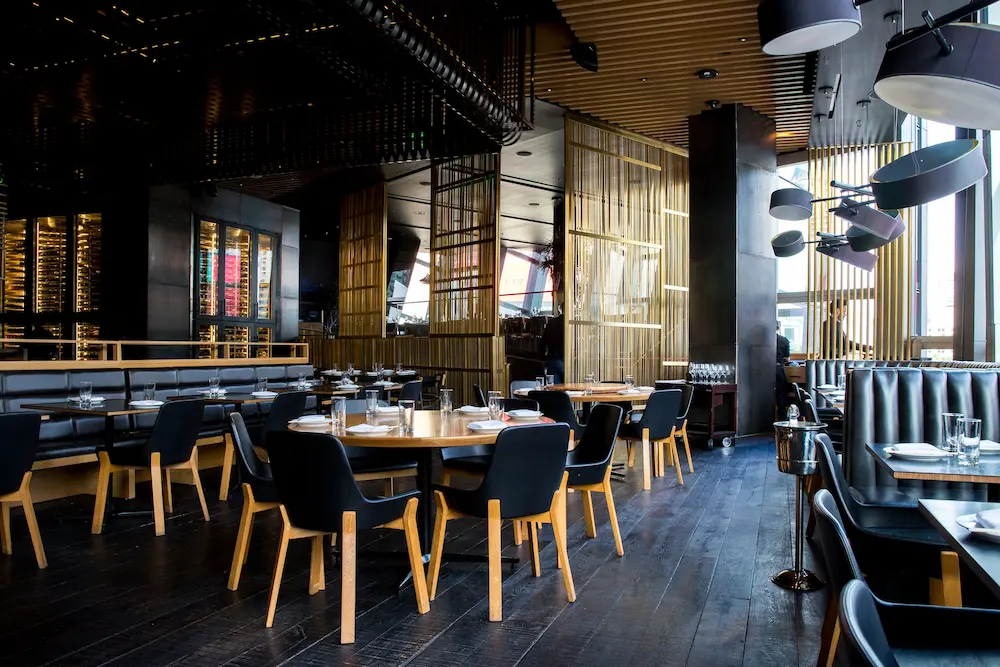If you’re in the market to buy a restaurant in London, Ontario, you’re embarking on an exciting journey.
However, one of the most critical steps in this process is determining the right price to pay for your potential investment.
Restaurant valuation for buyers involves assessing various factors to ensure that you’re making an informed decision. In this article, we will guide you through the key considerations for determining the right price when buying a restaurant in London, Ontario.
How Much Should You Pay for a Restaurant in London
Financial Due Diligence
Before making an offer to buy a restaurant for sale in London, Ontario, thoroughly analyze the financial health of the restaurant you intend to purchase. Request detailed financial statements, including income statements, balance sheets, and cash flow statements for the past few years. Key financial metrics to consider include:
Revenue
Examine the restaurant’s historical revenue, looking for trends in growth or decline, as it provides insights into the establishment’s market performance.
Profitability
Assess profit margins, including net profit, EBITDA (Earnings Before Interest, Taxes, Depreciation, and Amortization), and gross profit margins. Determine whether the restaurant has a history of profitability, which is essential for long-term sustainability.
Debt and Liabilities
Understand the restaurant’s debt load and any outstanding liabilities. High levels of debt may impact your ability to finance the acquisition, potentially affecting your investment strategy.
Location and Market Analysis
The location of the restaurant is a crucial factor in determining its value. Conduct a thorough analysis of the restaurant’s location in London. Consider factors such as:
Foot Traffic
Assess the restaurant’s visibility and accessibility to potential customers. A prime location with high foot traffic can contribute to higher revenue potential and long-term success.
Competition
Analyze the competition in the area. Evaluate the strength of nearby competitors and whether the market can support another restaurant. Understanding the competitive environment is vital for strategic positioning.
Local Demographics
Understand the demographics of the surrounding area, including population density, income levels, and dining preferences. This information can help you gauge the restaurant’s potential customer base and tailor your offerings accordingly.
Lease Terms
If the restaurant operates in a leased space, carefully review the lease terms. Evaluate factors such as:
Lease Duration
Determine how long the lease has remaining and whether there are any options for renewal. A favorable lease duration can provide stability and reduce uncertainty in your investment.
Rent Escalations
Check if the lease includes rent escalations over time and assess the impact on your future expenses. Understanding rent dynamics is crucial for financial planning.
Lease Conditions
Review any specific lease conditions that may affect your ability to operate the restaurant successfully. These conditions could include restrictions on renovations or changes to the property, which may influence your business plans and investment strategy.
Business Reputation and Intangible Assets
Consider the restaurant’s brand reputation and intangible assets, such as its customer base and online presence. A well-established and reputable restaurant can command a higher price. Investigate the following:
- Online Reviews: Read customer reviews on platforms like Yelp, Google, and TripAdvisor to gauge the restaurant’s reputation and customer satisfaction.
- Social Media Presence: Assess the restaurant’s presence on social media platforms and its engagement with customers.
- Intellectual Property: Determine if the restaurant owns any unique recipes, trademarks, or other intellectual property that could add value to the business.
Comparable Sales
To assess whether the asking price is reasonable, research comparable restaurant sales in London, Ontario. Look for recently sold restaurants with similar characteristics, such as size, location, and concept. Comparing your target restaurant to these comps can provide valuable insights into fair market value.
Consult with Experts
Consider seeking guidance from professionals who specialize in restaurant acquisitions. Restaurant brokers, business appraisers, and financial advisors can help you assess the restaurant’s value objectively and provide valuable insights into the local market and industry trends.
Negotiation and Contingencies
Once you’ve determined a fair price for the restaurant, start negotiating with the seller. Be prepared to make a reasonable offer and include contingencies in the purchase agreement to protect your interests. Common contingencies include inspections, financing approval, and clear title verification.
Conclusion
Buying a restaurant in London, Ontario, is an exciting opportunity, but it requires careful consideration of various factors to determine if you are paying the right price.
Conduct thorough financial due diligence, analyze the location and market, review lease terms, assess the restaurant’s reputation and intangible assets, and research comparable sales. Seek expert advice when needed, and be prepared for negotiation and the inclusion of contingencies in the purchase agreement.
By following these steps, you can make an informed decision and ensure that you pay a fair price for your restaurant investment.

